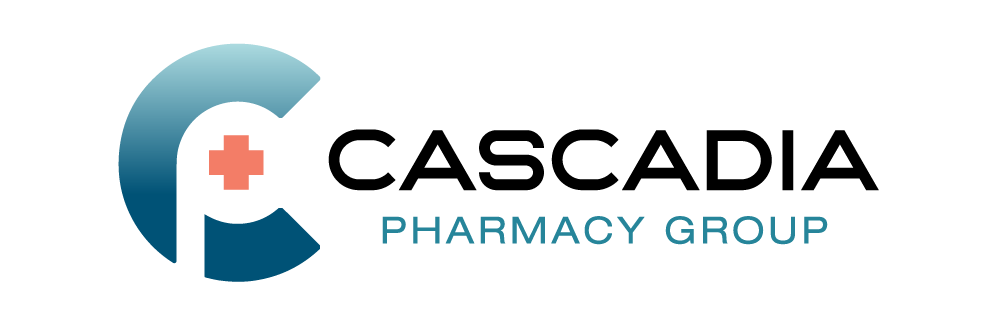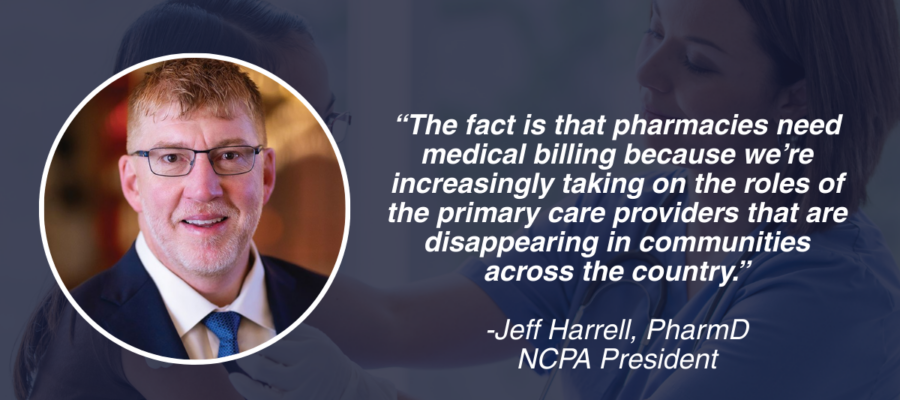This article originally appeared in the April 2025 issue of America’s Pharmacist®, published by the National Community Pharmacists Association. Reprinted with permission.
Pharmacy’s Path Forward: Medical Billing and the Push for Sustainable Clinical Services
As the healthcare landscape continues to evolve, independent pharmacies are stepping up to fill critical gaps in care—especially in rural and underserved communities. Jeff Harrell, CEO of Cascadia Pharmacy Group and current President of the National Community Pharmacists Association (NCPA), has long been an advocate for ensuring that pharmacists are not only recognized but reimbursed for the care they provide.
In the April 2025 issue of America’s Pharmacist, Jeff shares his perspective on how pharmacies can embrace medical billing as a way to expand clinical services, improve patient care, and move the profession toward a more sustainable model. This article, originally published as the “Up Front” column in NCPA’s member-exclusive magazine, highlights both the challenges and opportunities ahead for pharmacy owners navigating medical billing and credentialing.
We’re grateful to NCPA for allowing us to share this content here on the Cascadia blog. If you’re not yet an NCPA member and want access to the full issue and other valuable benefits—including advocacy updates, educational tools, and member-only publications—you can learn more and sign up at ncpa.org/membership.
Read on for Jeff’s full article from the April edition of America’s Pharmacist.
As an industry, we’ve been trying to wrap our arms around clinical services and medical billing for the last 10-15 years. The case for it is clear: It can help you make more revenue out of services you’re likely already providing, like vaccinations, and help you adopt additional services that otherwise might not make financial sense. It can also help you serve some of the more vulnerable in your communities by making it more affordable for those on public insurance.
It’s been a slow journey to get to fair reimbursement for clinical services, and it can be difficult to find software that makes it doable without it being a massive lift for staff. Lastly, there’s a wide sense that credentialing and contracting for medical billing is extremely labor intensive.
Some of these concerns are fair. It’s true that it can be tough for owners to wrap their heads around all of the contracting, negotiating, and credentialing with the payer. This is where you have to lean on your peers; there are already pharmacists out there, the ones in ambulatory care and clinical services, who you can rely on to learn from. It’s what they do every day. In this issue of America’s Pharmacist® we’ll delve deeper into medical billing and hear from people who have had success doing it.
You can engage with CPESN® USA through its Medical Billing Supports program, to get education on the process behind medical billing, payer codes, and software to use, as well as guidance on credentialing and revenue cycle management.
It’s also worth creating relationships with payers early. In many states, payers are used to working with pharmacists for medical billing. Contact representatives of the managed Medicaid company and talk to them. Ask them what their pain points are and how many dollars they’re leaving on the table, and how you can help them increase their quality rating.
As to determining whether it’s worth it for your location, that’s a personal
call. For me, a good rule of thumb is that unless you’re netting 1.5 times a pharmacist’s salary, it doesn’t pencil out to dive into these services headfirst because you’re not bringing in enough revenue to offset your employee costs – but that may not be true for everyone in every situation.
As an industry, pharmacy still has a lot of hurdles to clear to get the revenue stream at a level where it is sustainable for many pharmacies to invest in medical billing and clinical services. We’re closer than we’ve ever been, but we need to work together to make medical billing an easier, more efficient process for every independent pharmacy that could benefit from it.
The fact is that pharmacies need medical billing because we’re increasingly taking on the roles of the primary care providers that are disappearing in communities across the country. If we’re going to provide services, such as vaccinations, point of care testing, medication therapy management, diabetes care, and others, we need to be paid for them. It’s also one of the key tools to
change pharmacy’s payment model for the better.

